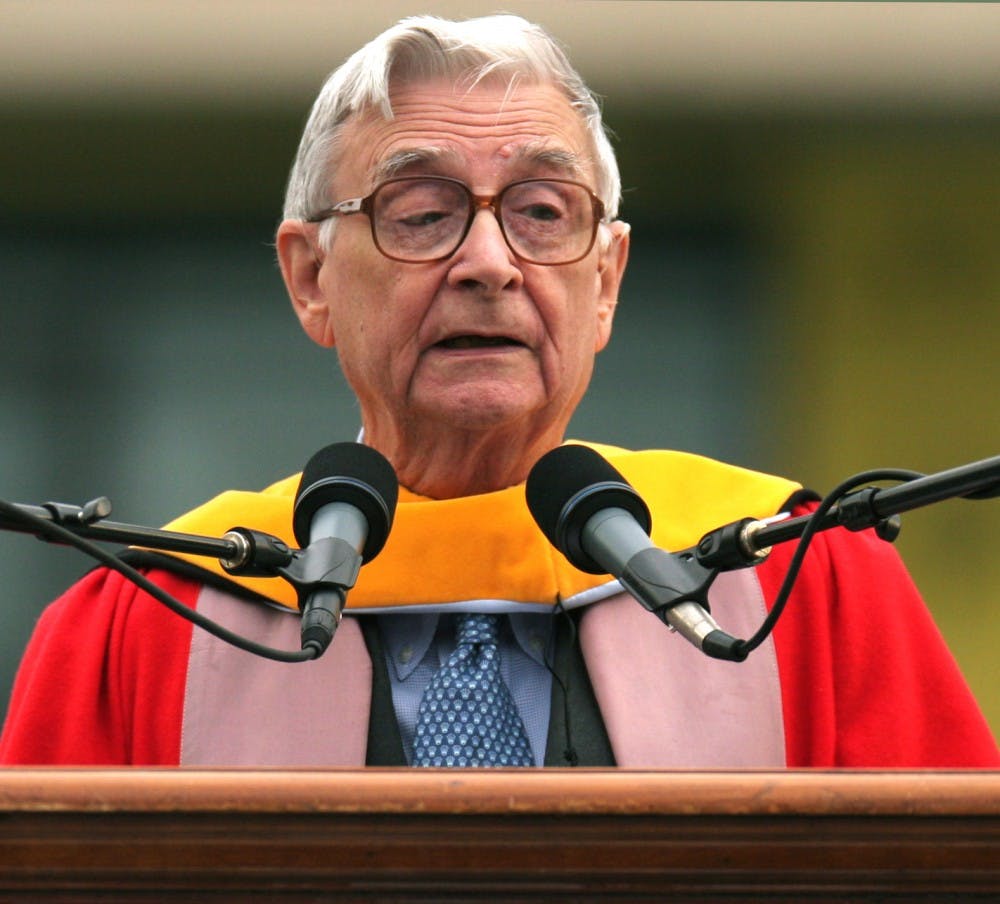DTH: I’ve grown up in a society, I think, that has a large dose of skepticism surrounding science in general. How can you reach people, specifically young people, about taking individual action?
EW: The environmental problems that have been worked out — from global warming to resource depletion to species extinction and ecosystem destruction — they are real. And they’re all documented. It’s curious that people remain skeptical. There’s sort of a state of denial in which they really would prefer to think that they can hold off making any big decision about it into the future or just ignore it or deny it and life will go on. It’s not going to be like that. Right now there are two small island nations in the Pacific that are beginning to evacuate and have their people move to New Zealand as the sea rises.
You know, when all else fails, people turn to reason.
DTH: You did grow up in the South — Alabama — and your passion for biology was somewhat borne out of your natural surroundings. Do you miss what life was like in the South?
EW: Yes. I’ve been in New England for 60 years — at Harvard. New England is the price I paid in order to go to a great university. But my heart is still in the South. In fact, I’ve written one novel that is centered around my hometown of Mobile, Alabama. And I’ve just finished (writing) a history of Mobile. So yes, I’ve remained a southerner.
DTH: And in other interviews, you’ve described adventures that you’ve had in pursuit of ant species. Having grown up in the last 20 years or so, I’ve experienced the impression that there are no new oceans or new frontiers to conquer or to explore in the natural world. How do you counter that?
EW: I point out that we only know 10 percent of the species that actually exist on the planet. And each one of those species can be looked at as a kind of frontier. No, this is a little-explored planet that we live on. It’s out there waiting to be explored, particularly at the biological level.
DTH: You co-authored an article last year in Nature, a scientific journal, that pointed out the limitations of the kin selection theory, which has served as grounding for sociobiology since its beginning. Can you briefly summarize your view on this and the disagreement from other scientists that has arisen?
EW: Not only was kin selection theory stumbling in its application and how much sense it really seemed to make, but it also turned out that the foundations were unsound. So that’s essentially what our Nature article stated, and we proposed a much more straightforward theory called multilevel selection theory, which is somewhat of a return to traditional population genetics.
None of the responses (that have been made) have yet challenged the main critique that we presented. I have complete confidence that we are correct on this and that the genetic theory that we have provided will be one that stands scrutiny in the future.
Contact the University Editor at university@dailytarheel.com.
To get the day's news and headlines in your inbox each morning, sign up for our email newsletters.



